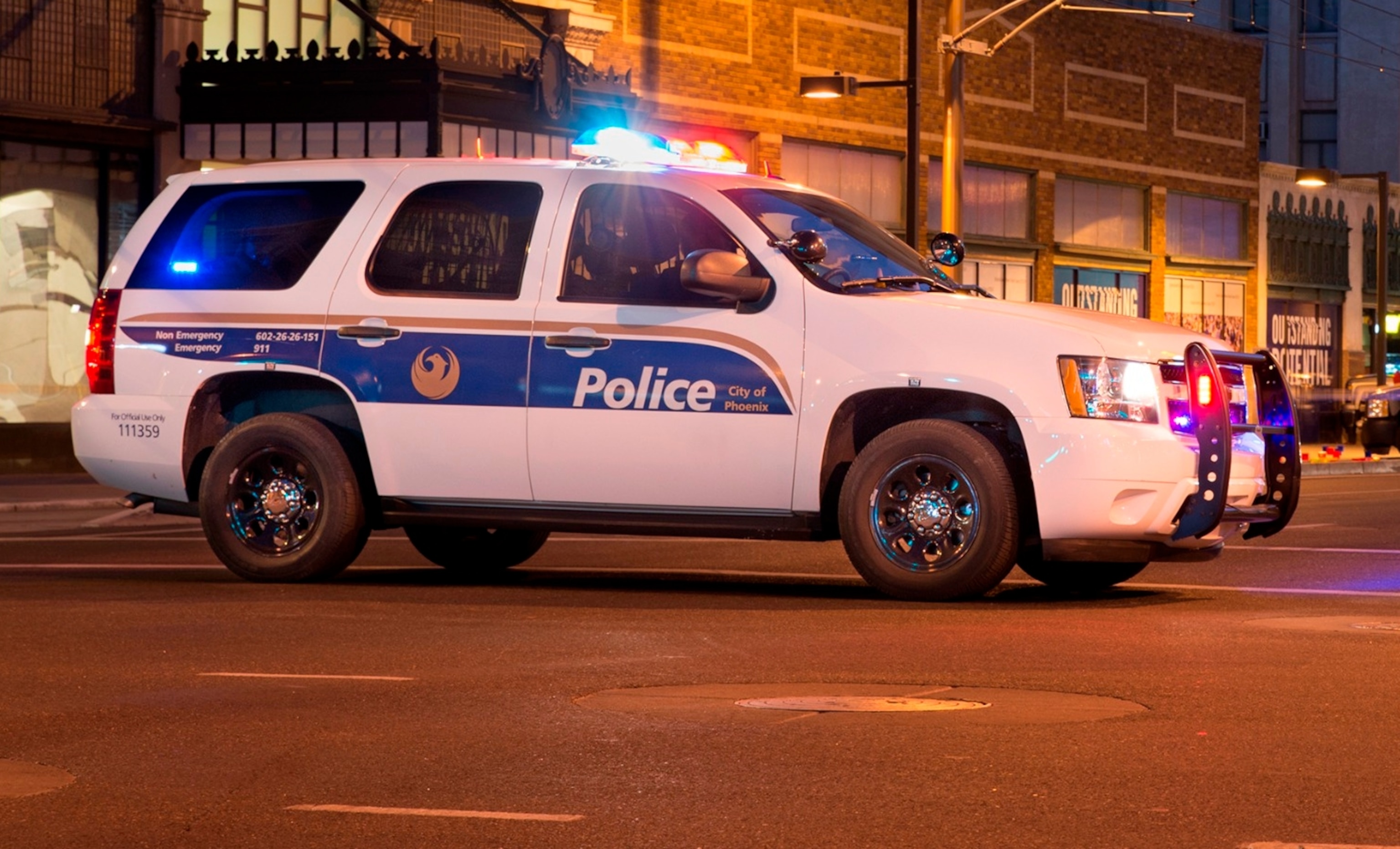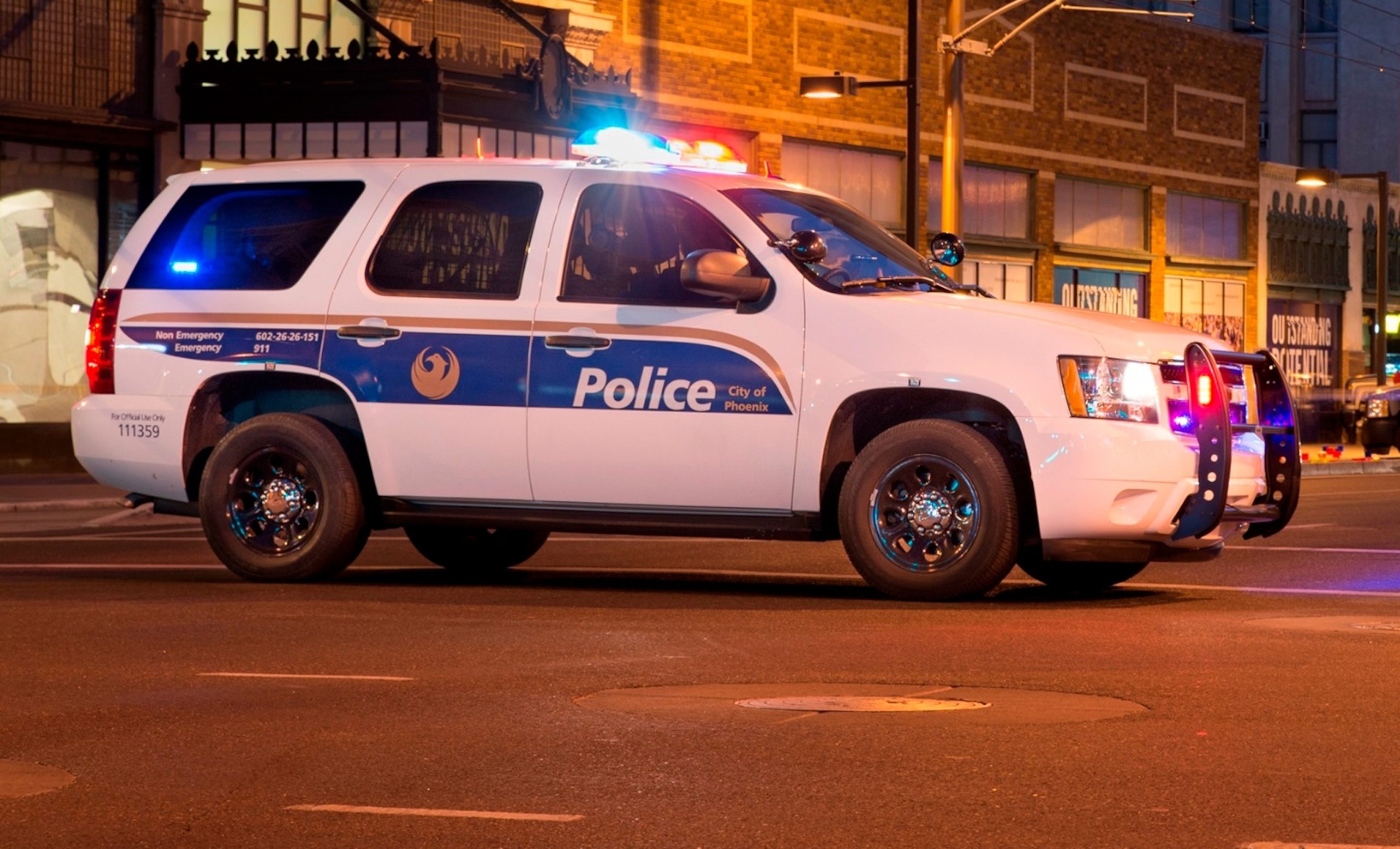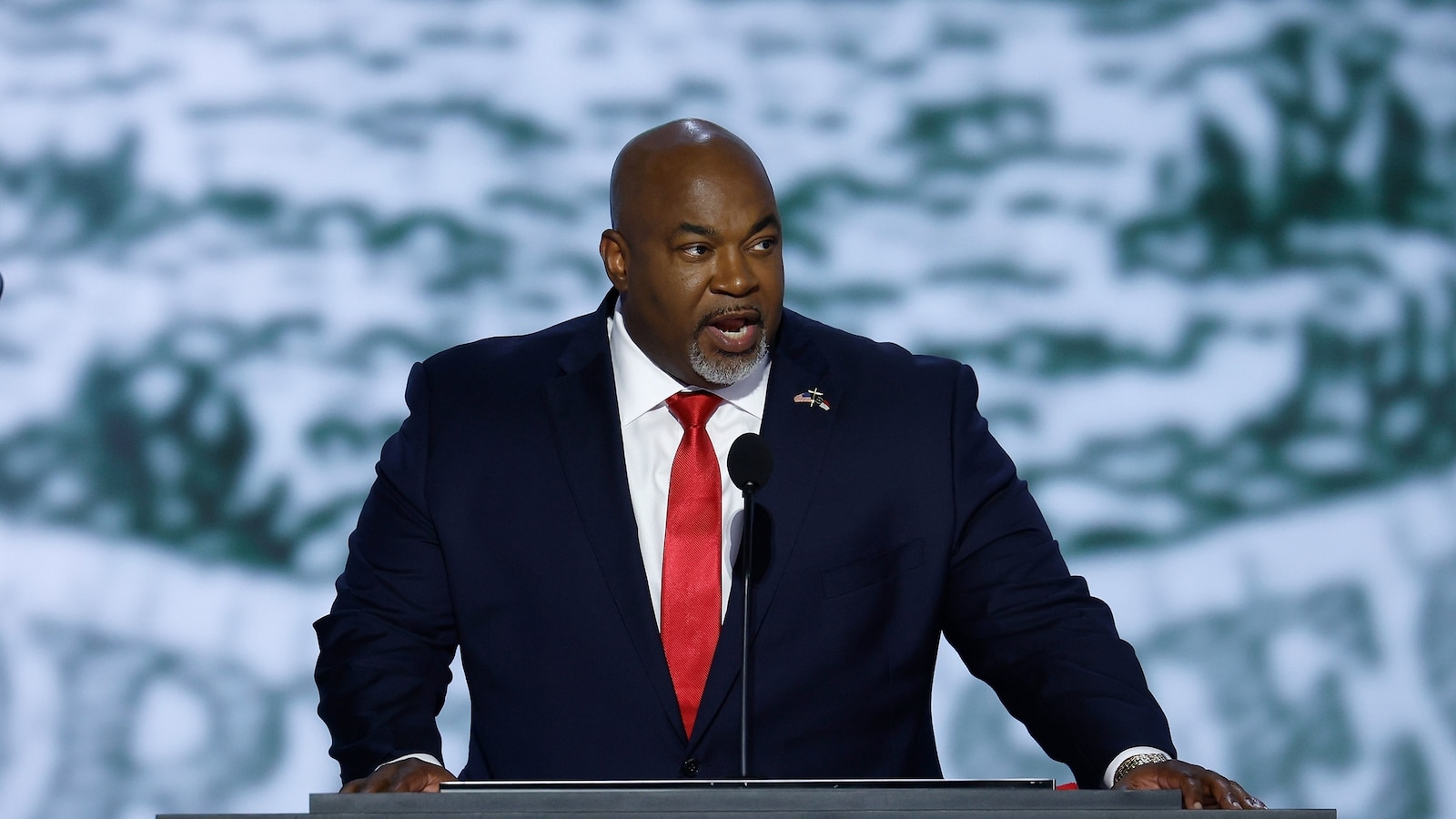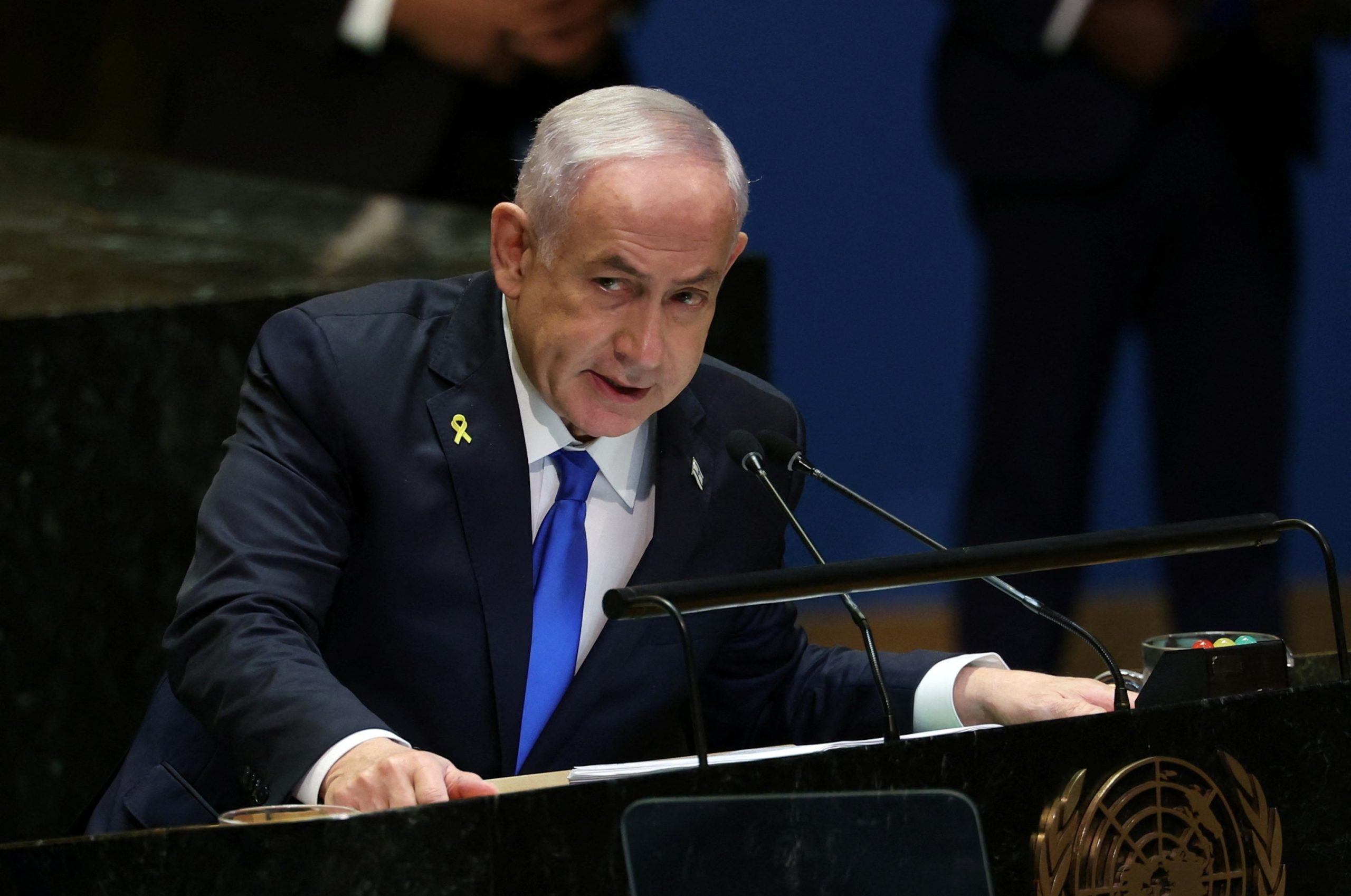A damning new report from the Justice Department released Thursday has concluded that the Phoenix Police Department has engaged in a “pattern or practice of conduct” that “deprives people of their rights under the Constitution and federal law.”
A DOJ investigation found “systemic problems” within the department’s policies, training, supervision and accountability systems that were “perpetuated” for years.
In its report, the Justice Department found a spate of civil rights violations, including “unjustified deadly force,” discrimination in traffic and other enforcement, and unlawful detention, citations and arrests of the homeless.

In this March 18, 2014, file photo, a police car blocks an avenue in downtown Phoenix.
STOCK IMAGE/Getty Images
‘Excessive force’
The Phoenix Police Department has the highest rate of shootings of any major city, according to the report.
The DOJ report claims Phoenix officers often fire weapons at people who aren’t an immediate threat and often inappropriately escalate the violence. In addition to being “reckless,” officers are accused of delaying rendering emergency aid after a shooting.
City police frequently rely on neck and compression restraints that could put people at risk for injury of suffocation, according to the report.
“PhxPD officers use these dangerous compression restraints against people experiencing a behavioral health crisis who do not present a risk to officers or others. In one incident, officers knelt for several minutes on the neck of a suicidal man who claimed to have stabbed himself with a nail file,” according to the report. In another instance in 2021, the report cited, an officer squeezed his neck with both hands as he was attempting to get his ID.
‘Enforcement discrimination’
In Phoenix, Hispanics were 12 times more likely to get a minor traffic violation than their white counterparts. Black people are cited or arrested three times as often as white people for traffic-equipment related offenses, according to the report.
The Justice Department’s top civil rights attorney called the findings of the report “severe” and said that citizens of Phoenix deserve equal treatment under the law.
“Our investigation found that the police department discriminates against Black, Hispanic and Native American people in its enforcement activities,” Kristen Clarke, the head of the Justice Department’s Civil Rights Division told reporters on a virtual press conference. “Police officers have an obligation to enforce the law fairly and equally, but in Phoenix, officers are disproportionately targeting communities of color.”
For example, she said, black drivers in Phoenix are 144% more likely than white drivers to be arrested or cited for low level moving violations, and Hispanic drivers are, for them, more likely to be arrested or cited for the same thing.
DOJ also found that the Phoenix police intolerant of those who offered criticism and questioned how officers dealt with protesters.
“We found officers used indiscriminate force against protestors, falsified allegations to arrest protest leaders, retaliated against people critical of the police, and prevented people from lawfully recording police conduct,” the report says.
Furthermore, the Department of Justice said that while officers were on duty and responding to protests, officers made malicious and demeaning statements about protestors, cheered the use of force, and celebrated their success in suppressing speech.

In this March 6, 2014, file photo, the Phoenix police department logo is shown in Phoenix, Arizona.
Mark J. Rebilas-USA TODAY Sports, FILE
‘Challenges in dealing with people with mental health crisis and minors’
Regarding the Phoenix Police Department’s response to people experiencing a behavioral health crisis, the DOJ said “too frequently, they dispatch police alone when it would be appropriate to send behavioral health responders.”
“Officers act on the assumption that people with disabilities are dangerous and rarely modify their approach,” according to the report. “Officers resort to using force rather than de-escalation tactics that would likely help a person with behavioral health disabilities follow directions. As a result, people with behavioral health disabilities suffer harm such as force, trauma, and criminal consequences, rather than receiving emergency mental health care.”
The police department has also had concerning contact with minors, the DOJ said.
“In 2022, officers handcuffed and used neck restraints on a 13-year-old boy with autism who had walked out of school without permission. An officer spotted the boy walking alongside a road near the school and told him to stop. The boy kept walking, and the officer ran after him, grabbing his arms from behind, tackling him, and holding him down. With the officer’s knee in his back and hand on his neck, the boy pleaded to be let go: “My mom’s right there. I can’t breathe. I’m just trying to get home,” the report found.
In August 2021, the Justice Department opened an investigation into the police department after complaints about excessive force.
The Justice Department interviewed hundreds of officers, supervisors, commanders and current and former city officials during the process of compiling the report.
“The release of today’s findings report is an important step toward accountability and transparency, and we are committed to working with the City of Phoenix and Phoenix Police Department on meaningful reform that protects the civil rights and safety of Phoenix residents and strengthens police-community trust,” Attorney General Merrick Garland said in a statement.
The City of Phoenix said in a statement the City will take the necessary time to review the findings in detail before responding.
“We are taking all the DOJ’s findings seriously and are planning to review this lengthy report with an open mind,” City Manager Jeff Barton said in a message to City employees. “Self-reflection is an important step in continuous improvement, and our Police Department has demonstrated a commitment to continuous improvement by making enhancements to policy, internal investigations and training.”
The Department of Justice (DOJ) recently concluded an investigation into the Phoenix Police Department, revealing a troubling pattern of civil rights violations. The investigation, which began in response to numerous complaints from community members and civil rights organizations, uncovered systemic issues within the department that have led to the violation of individuals’ constitutional rights.
One of the most alarming findings of the investigation was the disproportionate use of force by Phoenix police officers, particularly against communities of color. The DOJ found that Black and Hispanic residents were more likely to be subjected to excessive force, including physical violence and deadly force, than their white counterparts. This pattern of discrimination not only violates individuals’ civil rights but also erodes trust between law enforcement and the communities they serve.
In addition to excessive use of force, the investigation also revealed a lack of accountability within the Phoenix Police Department. Officers who engaged in misconduct were often not held accountable for their actions, leading to a culture of impunity within the department. This lack of accountability not only allows for continued violations of civil rights but also undermines the public’s confidence in the police force.
Furthermore, the DOJ found that the Phoenix Police Department has failed to adequately address complaints of misconduct and discrimination. The department’s internal affairs division was found to be ineffective in investigating and addressing complaints, further perpetuating a culture of impunity among officers.
In response to these findings, the DOJ has issued a series of recommendations to the Phoenix Police Department aimed at addressing these systemic issues. These recommendations include implementing new training programs on de-escalation techniques and cultural sensitivity, improving accountability measures for officers who engage in misconduct, and enhancing community engagement efforts to rebuild trust with marginalized communities.
It is crucial that the Phoenix Police Department takes these recommendations seriously and works towards implementing meaningful reforms to address the civil rights violations uncovered by the DOJ investigation. By holding officers accountable for their actions, improving transparency and oversight, and building stronger relationships with the community, the department can begin to rebuild trust and ensure that all residents are treated fairly and equitably under the law.
In conclusion, the DOJ investigation into the Phoenix Police Department has shed light on serious civil rights violations that must be addressed. It is imperative that the department takes swift and decisive action to implement reforms that will prevent future violations and restore trust with the community. Only by holding officers accountable and fostering a culture of transparency and accountability can the Phoenix Police Department truly fulfill its duty to protect and serve all residents.



